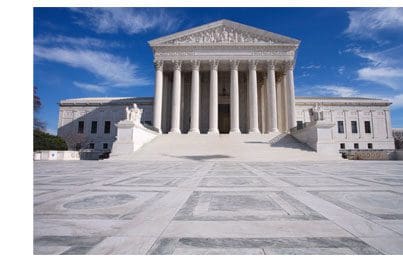Search Posts
Recent Posts
- Rhode Island Weather for June 17, 2025 – Jack Donnelly June 17, 2025
- ART! FabriCollage exhibition at Gallery at Providence City Hall June 17, 2025
- Adam Vinatieri hosts 3rd annual Clays 4 Charity at The Preserve – for US military charities June 17, 2025
- June is Internet Safety Month: Tips to protect your family – Cox New England June 17, 2025
- Juneteenth with Stages of Freedom: Finding Bannister Walking Tour June 17, 2025
Categories
Subscribe!
Thanks for subscribing! Please check your email for further instructions.

Business Matters: COVID-19 legal issues
Information on coronavirus times and the law from the professionals at Pannone Lopes Devereaux & O’Gara law firm in Rhode Island.
Please be assured that the lawyers and staff at PLDO are committed to providing uninterrupted quality legal service during this challenging time. We are in this together and we will all be better and stronger when it is behind us…and it will be.
Since the start of the pandemic, our firm mobilized to work remotely in order to keep everyone safe from the virus and our priority is to continue providing responsive and seamless services despite the change. All of our offices are fully equipped with advanced technology to support remote meetings and consultations and we remain committed to providing you with the support you need.
Please do not hesitate to contact your PLDO attorney directly in our Rhode Island, Massachusetts or Florida offices or call our toll free number at 866-353-3310 to discuss your legal matter or schedule a remote consultation.
The attorneys and staff at PLDO are committed to doing our part in containing and mitigating exposure to the coronavirus for our staff, their families, our clients and community during these truly unprecedented times. We will keep you informed when conditions change and as information becomes available.
Gary R. Pannone
Managing Principal

_____
MANDATORY VACCINES FOR CORONAVIRUS? LIKELY LEGAL UNDER 115-YEAR OLD U.S. SUPREME COURT CASE
Once the current crisis phase of the coronavirus pandemic passes, attention will turn to when a vaccine will be available for the general public. America will have to decide as a matter of law and policy whether states should make it mandatory for people to obtain the coronavirus vaccine. And, states will have to decide whether to punish those citizens who fail or refuse to get vaccinated.

If you think this scenario is far-fetched and too Orwellian to consider–we’re free Americans, after all–think again. Over a century ago, Massachusetts passed a law mandating adults get vaccinated for smallpox or face a $5 penalty (about $150 in 2020 dollars). Even though the vaccine was free, Henning Jacobson objected to Massachusetts’ efforts to force him to be vaccinated. He claimed that this governmental coercion was offensive to his individual rights and liberties under the United States Constitution. He also claimed that the vaccines were dangerous and unproven.
The United States Supreme Court disagree with Jacobson, and upheld his conviction for refusing to be vaccinated. The Court noted that states enjoy what is known as the “police power,” meaning they can enact reasonably necessary laws to protect the health, safety, and welfare of their citizens. This included the ability to enact “health laws of every description” within their discretion.
Jacobson contended that mandatory vaccinations offended his personal liberty and right to be free from government oppression and intervention. The Court acknowledged these liberty rights, but noted that these rights are not absolute and that Americans have no absolute right at all times and in all circumstances to be entirely free from restraint. The Court then weighed Jacobson’s individual liberty rights against the needs of society as a whole, and concluded that as between the two, “a community has the right to protect itself against an epidemic of disease which threatens the safety of its members.”
One interesting aspect of this case was the Supreme Court’s lengthy discussion of the science around the safety and efficacy of the smallpox vaccine. Even though Massachusetts could not prove that the vaccine was absolutely safe in all circumstances and in all people, the Supreme Court was satisfied that its general safety and efficacy was sufficient. This is another reason why it takes vaccines so long to develop and come to market. They must be proven safe and effective so as to avoid legal challenges such as that mounted by Jacobson over a century ago. For further information about this topic or other legal issues important to you, please contact PLDO Partner and business and employment law attorney and litigator Brian J. Lamoureux at 401-824-5155 or email bjl@pldolaw.com.
EQUITY COMPENSATION FOR KEY SERVICE PROVIDERS: CAPITAL INTERESTS VS. PROFITS INTERESTS

In the last few years, it is probably safe to say that more businesses have been organized as limited liability companies (“LLCs”) than any other form of business entity. There are a variety of reasons for this trend but to a large extent it results from the fact that an LLC has most of the advantages of tax favored S corporations and partnerships, without having many of the disadvantages of those entities. Unlike S corporations, LLCs can have an unlimited number of members (owners), including U.S. and foreign individuals, corporations, partnerships and other LLCs. They can also have multiple classes of equity, both common and preferred. S corporations are only permitted to have voting and non-voting common stock. A lesser known benefit of LLCs is that LLCs, which elect to be treated as partnerships for income tax purposes, are permitted to issue both capital interests and profits interests to employees and other service providers for services rendered. For these companies, providing equity compensation to key employees is both necessary and advisable.
In his latest business advisory, Equity Compensation For Key Service Providers – Capital Interests vs. Profits Interests, PLDO Partner William F. Miller discusses equity compensation as a consideration for many companies and offers his insight and knowledge in describing the details regarding capital interests and profits interests to help business owners make informed decisions. For further information on this topic and other corporate matters and business strategies, please contact Attorney Miller at 401-824-5100 or email wmiller@pldolaw.com.
NAVIGATING MORTGAGE RELIEF OPTIONS UNDER THE CARES ACT

Homeowners challenged to stay current with their mortgage payments due to the COVID-19 crisis are finding relief in several federal emergency measures provided in the Coronavirus Aid, Relief, and Economic Security Act or the CARES Act. Two provisions include a 60-day foreclosure suspension or moratorium on filing new foreclosure actions or finalizing a foreclosure judgment or sale, and mortgage forbearance for federally backed mortgage loans. Although the mortgage forbearance option under the CARES Act is widely discussed, it is often misunderstood and there are several considerations to be aware of and steps homeowners should take before entering into a forbearance agreement with a lender, including contacting the mortgage servicer – the company from whom you receive your monthly statements.
To help clarify the law and procedures, PLDO Senior Counsel and estate, trust and tax lawyer Leah A. Foertsch has released an advisory, Navigating Mortgage Relief Options Under the CARES Act. In her article, Attorney Foertsch explains eligibility requirements, offers questions homeowners should ask and provides practical guidance to help make informed decisions. If you have questions or need further information, please contact Attorney Foertsch at 561-362-2030 or toll free at 866-353-3310 or email lfoertsch@pldolaw.com.
KEEPING UP WITH COVID-19 ISSUES, INSIGHTS AND ANALYSIS

The Coronavirus pandemic changed how many of us operate our businesses and our daily lives. Like you, the attorneys and staff at PLDO are committed to doing our part in containing and mitigating exposure to COVID-19 for our colleagues, clients and community during these unprecedented times. To help keep people abreast of legal issues that have arisen as a result of new legislative actions, PLDO’s teams of employment, business and estate and tax attorneys have provided multiple e-news alerts and advisories such as those items in this edition of Business MATTERS. Below are an assortment of other COVID-19 related resources to access covering a wide range of topics that may affect you and/or your organization.
As new information becomes available, we will be providing further updates and analysis at PLDO COVID-19 Resources and responding to questions and concerns from individuals, families, businesses and government entities through our teleconference and remote services center. Please do not hesitate to contact your PLDO attorney directly in our Rhode Island, Massachusetts or Florida offices or call our toll free number at 866-353-3310 to discuss your legal matter or schedule a remote consultation. We are in this together and we will all be better and stronger when it is behind us…and it will be.
UNEMPLOYMENT GUIDANCE FOR ALL EMPLOYERS
COVID-19 Unemployment Guidance For All Employers
UNEMPLOYMENT GUIDANCE FOR NONPROFIT ORGANIZATIONS
COVID-19 Unemployment Guidance for Nonprofits
FAMILIES FIRST COVID-19 RESPONSE ACT: FMLA AND PAID SICK LEAVE REGULATIONS
DOL Regulations on Emergency FMLA and Paid Sick Leave Provisions under the Families First COVID-19 Response Act
RHODE ISLAND AUTHORIZES REMOTE NOTARIZATION
Remote Notarization Has Arrived In Rhode Island During COVID-19 Crisis
THE CARES ACT OFFERS ENHANCED BANKRUPTCY OPTIONS FOR BUSINESSES
Enhanced Bankruptcy Options For Small Businesses Under The CARES Act
THE CARES ACT AND THE CHALLENGING RULES FOR AFFILIATED EMPLOYERS
The CARES Act and the Challenging Rules for Affiliated Employers
DOL EXEMPTS WIDE CATEGORY OF WORKERS FROM COVID-19 PAID LEAVE MANDATE
DOL Exempts Wide Category of Workers From COVID-19 Paid Leave Mandate
FORCE MAJEURE CLAUSES AND HOW COVID-19 MAY IMPACT CONTRACTS
How Will The Coronavirus Impact Your Contracts

